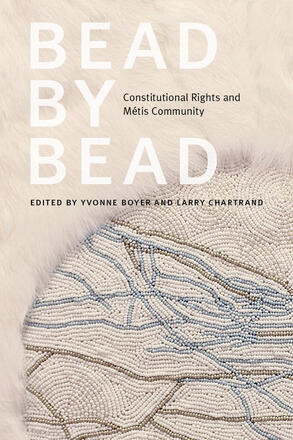
Bead by Bead lays bare the failure of judicial doctrine and government policy to address Métis rights, and offers constructive insights on ways to advance reconciliation.
Description
Bead by Bead examines the parameters that current Indigenous legal doctrines place around Métis rights discourse and moves beyond a one-size-fits-all approach. Contributors to this volume address the historical denial of Métis concerns with respect to land, resources, and governance. Tackling such themes as the invisibility of Métis women in court decisions, identity politics, and racist legal principles, they uncover the troubling issues that plague Métis aspirations for a just future. By revealing the diversity of Métis identities and lived reality, this critical analysis opens new pathways to respectful, inclusive Métis-Canadian constitutional relationships.